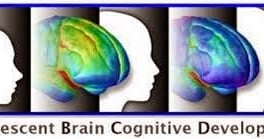ABCD Study Asks Children About Experiences With Racism

There is ample evidence that racism has negative effects on the health of youth, but few studies have examined the numbers of children in the United States who experience racism and discrimination directly. Data from the Adolescent Brain Cognitive Development (ABCD) Study—a national NIH-funded study tracking the biological and behavioral development of nearly 12,000 U.S. children beginning at age 9 and 10 through adolescence into young adulthood—may point to those at greatest risk and suggest ways to mitigate the effects of racism.
“Identifying the prevalence of racism and discrimination among a crucial developmental age group is imperative to curtail poor outcomes, adjust public health measures, and improve medical and mental health assessments and treatments,” wrote Jason M. Nagata, M.D., M.Sc., of the University of California, San Francisco, and colleagues in a research letter published Monday in JAMA Pediatrics.
During a one-year follow-up assessment of ABCD Study participants, children aged 10 and 11 years completed the Perceived Discrimination Scale. This assessment asked the children about their experiences of being treated unfairly or feeling unaccepted due to race, ethnicity, or color. The analysis included 10,354 children (49% girls; 51% boys), more than 45% of whom were identified by their parents or other caregivers as members of racial/ethnic minorities (19.2% Latino/Hispanic, 16.0% Black, 5.5% Asian/Pacific Islander children, 3.0% Native American, and 1.3% Other).
About 5% of the children reported discrimination due to their race/ethnicity, with the prevalence of discrimination highest among Black children (10%). After adjusting for other demographic factors, Asian/Pacific Islander (adjusted odds ratio [AOR], 2.76); Black (AOR, 2.64); Native American (AOR, 1.86); and Latino/Hispanic (AOR, 1.84) children had higher odds of perceived racism compared with White children. Additional analysis revealed that annual household income modified the association between being Black and perceived racism. Black race was associated with 8.23 higher odds of perceived racism among children with household incomes of $75,000 or higher compared with 2.43 higher odds of perceived racism among children with household incomes less than $75,000. This association was not seen in other racial/ethnic groups.
Although the children indicated that their peers were mostly the perpetuators of racism, “teachers and other adults were often reported as the source of this unfair treatment, highlighting the critical need to ensure antiracism practice and address structural racism within educational communities, which are important social determinants of health,” Nagata and colleagues wrote. “Mitigating the effects of racism on health should start with interventions in childhood.”
For related information, see the Psychiatric News article “Psychiatrists Discuss Impact of Racism Across Generations.”
(Image: iStock/PeopleImages)
Help APA Fight for Better Reimbursement for YOU – Take our Outpatient Insurance Survey by May 20
APA advocates on behalf of psychiatrists to increase reimbursement and decrease administrative burdens from public and private payers, legislators, and regulatory agencies. To ensure APA is well equipped to fight for better payment for clinical services, we need to know about our members’ experience with outpatient insurance participation. Your responses to questions regarding the nature of your outpatient practice and your experience with participating in health plan networks will help strengthen our arguments for appropriate reimbursement.
Will you please take 5 minutes today to complete this important survey?
Don't miss out! To learn about newly posted articles in Psychiatric News, please sign up here.






